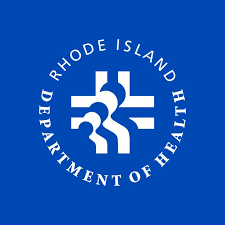PROVIDENCE – The R.I. Department of Health has $1.4 million to enhance the state’s nine current Health Equity Zones, as well as add new ones, and it is seeking proposals to determine how to invest it.
Health Equity Zones use a place-based approach to encouraging and equipping community members and partners to create healthy places for people to live, learn, work and play. The zones are tasked with eliminating health disparities among local communities through healthy strategies. The initiative is funded by the R.I. Department of Health and the Centers for Disease Control and Prevention, the Health Resources and Services Administration, and the Substance Abuse and Mental Health Services Administration. It was last funded in 2015 at $2.1 million, according to RIDOH spokesman Joseph Wendelken.
Existing Health Equity Zones, and new communities seeking to create Health Equity Zones, can both apply for funding, according to an announcement from the state health department. Letters of intent from communities seeking to create new Health Equity Zones are due by Feb. 1. Full proposals from all applicants are due to the state by March 15. The initial contract period will begin in July and continue for one year. Contracts may be renewed for up to four additional 12-month periods, similar to the previous four years, based on vendor performance and the availability of funds.
Existing Health Equity Zones:
- Bristol Health Equity Zone
- Newport Health Equity Zone
- Olneyville Health Equity Zone
- Pawtucket and Central Falls Health Equity Zone
- Providence Health Equity Zone
- Southside, Elmwood, West End Health Equity Zone
- Washington County Health Equity Zone
- West Warwick Health Equity Zone
- Woonsocket Health Equity Zone
The zones may involve residents, community-based organizations, business people, transportation and planning experts, youth-serving organizations, educators, health professionals and people cooperating to solve the most pressing concerns in their neighborhoods.
The Harvest Kitchen Cafe in Pawtucket, for instance, works with the help of the Pawtucket and Central Falls Health Equity Zone.
“The Harvest Kitchen Cafe has blossomed with the support of the HEZ,” said Jen Stott, Harvest Kitchen program director. “Through PCFD we have the perfect location for our local foods cafe and culinary job-training program for [youths], and the HEZ partnerships have provided resources for continued success. Our HEZ partner at Southside Community Land Trust is a source of fresh produce through their new local community gardens.”
Healthy Bodies, Healthy Minds, the branded name for the Washington County Health Equity Zone, received $2 million from the federal Substance Abuse and Mental Health Services Administration for the Zero Suicide in Washington County program providing depression care to eliminate suicides in the region, which has the state’s highest suicide rate.
“Every Rhode Islander, in every zip code, should have the opportunity to live the healthiest life possible, in the healthiest community possible,” said Dr. Nicole Alexander-Scott, director of the R.I. Department of Health. “A key feature of our Health Equity Zone initiative is that it puts the community’s voice front and center, since residents understand the challenges facing their communities the best. Public health leaders across the country are highlighting Health Equity Zones as a national model and a novel approach to funding and delivering public health services by building leadership capacity and effective coordination of communities to sustain long-term system and policy improvements. We are thrilled to expand this opportunity to additional communities here in Rhode Island.”
Rob Borkowski is a PBN staff writer. Email him at Borkowski@PBN.com.













